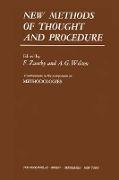New Methods of Thought and Procedure
BücherAngebote / Angebote:
10 Definitions Operations research, first called operational re search by P. M. S. Blackett (1) in Britain about 1938, has a broad zneaning illustrated by several exaznples in this section. Briefly, it znay be defined as the study of znan znachine systezns that have a purpose. In znore descriptive terzns, operations research involves the application of physical, biological, and social sciences in the znost quanti tative way possible. It thus draws on the disciplines of znedicine, psychology, and all forzns of engineering (2). As the following historical exaznples will show, an essential step in every 0 - R study is recognition of the purpose of an ope ration, an organiz ation, or a systezn. This often leads to a zneasure of znerit or a value parazneter by which operational results can be coznpared, for exaznple, the fraction of approaching aircraft shot down by an air-defense systezn, or annual sales of products by an industrial con cern, or gross national product of a country. Predictions of such operational results, and quanti tative coznparisons between different systezns, require znatheznatical znodels of each systezn and its operation. In sozne cases--such as the accuracy of anti-aircraft fire, or the cost of producing a znachined product, or transportation costs of delivery--the znodel can be znatheznatically precise or deterzninistic. More generally, operational results are probabalistic and require a stochastic znodel.
Folgt in ca. 5 Arbeitstagen
